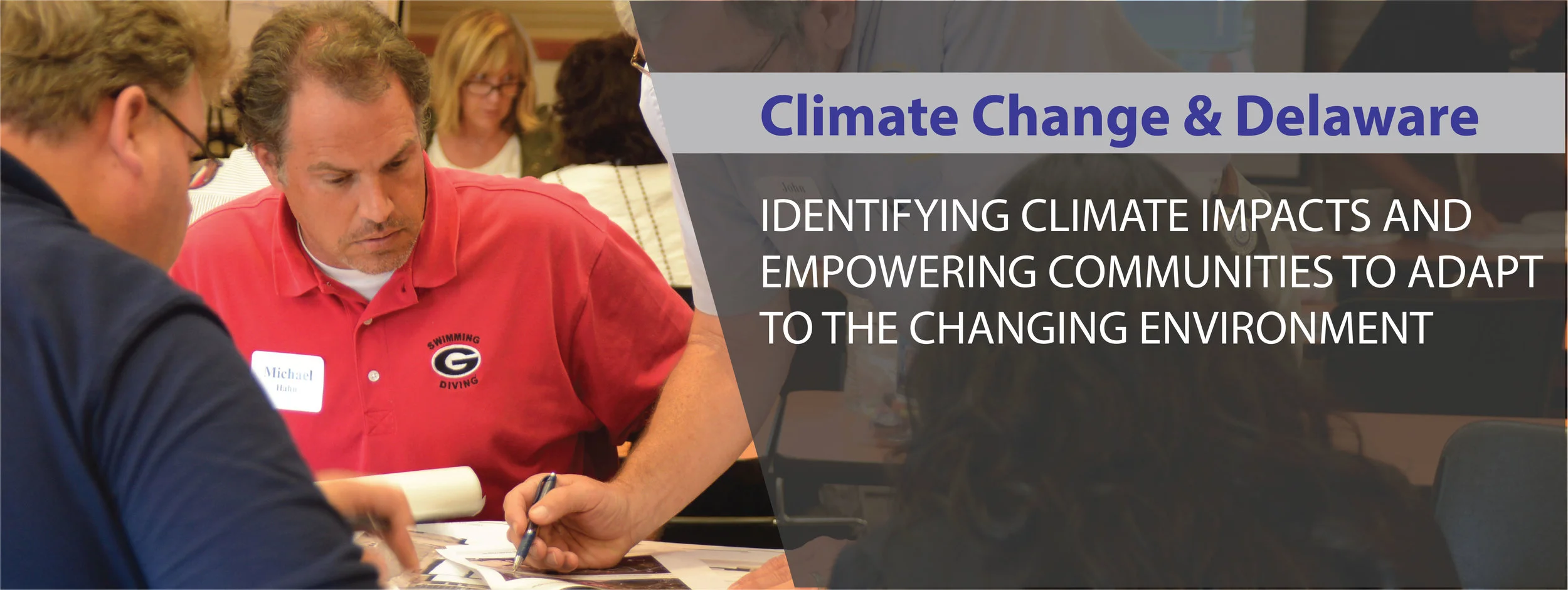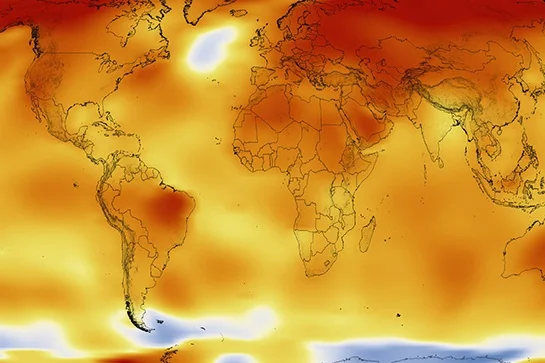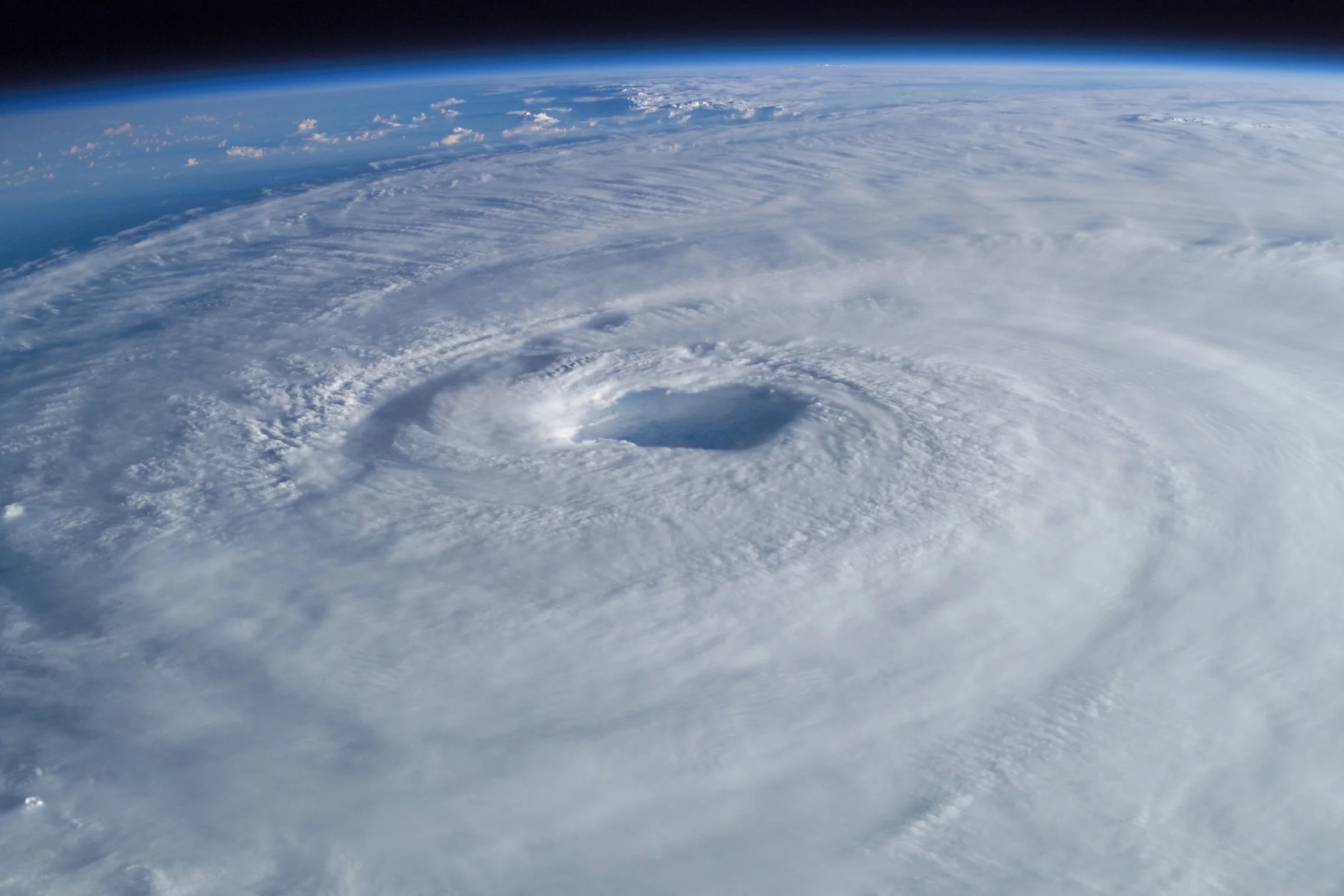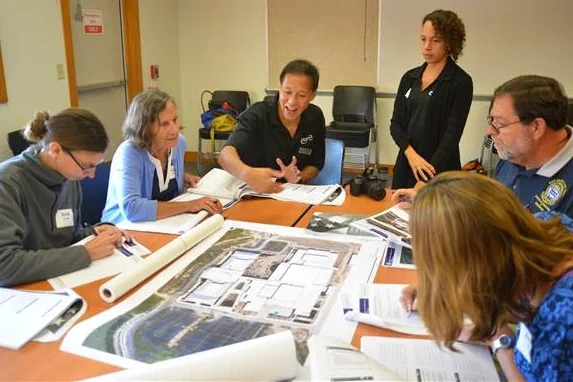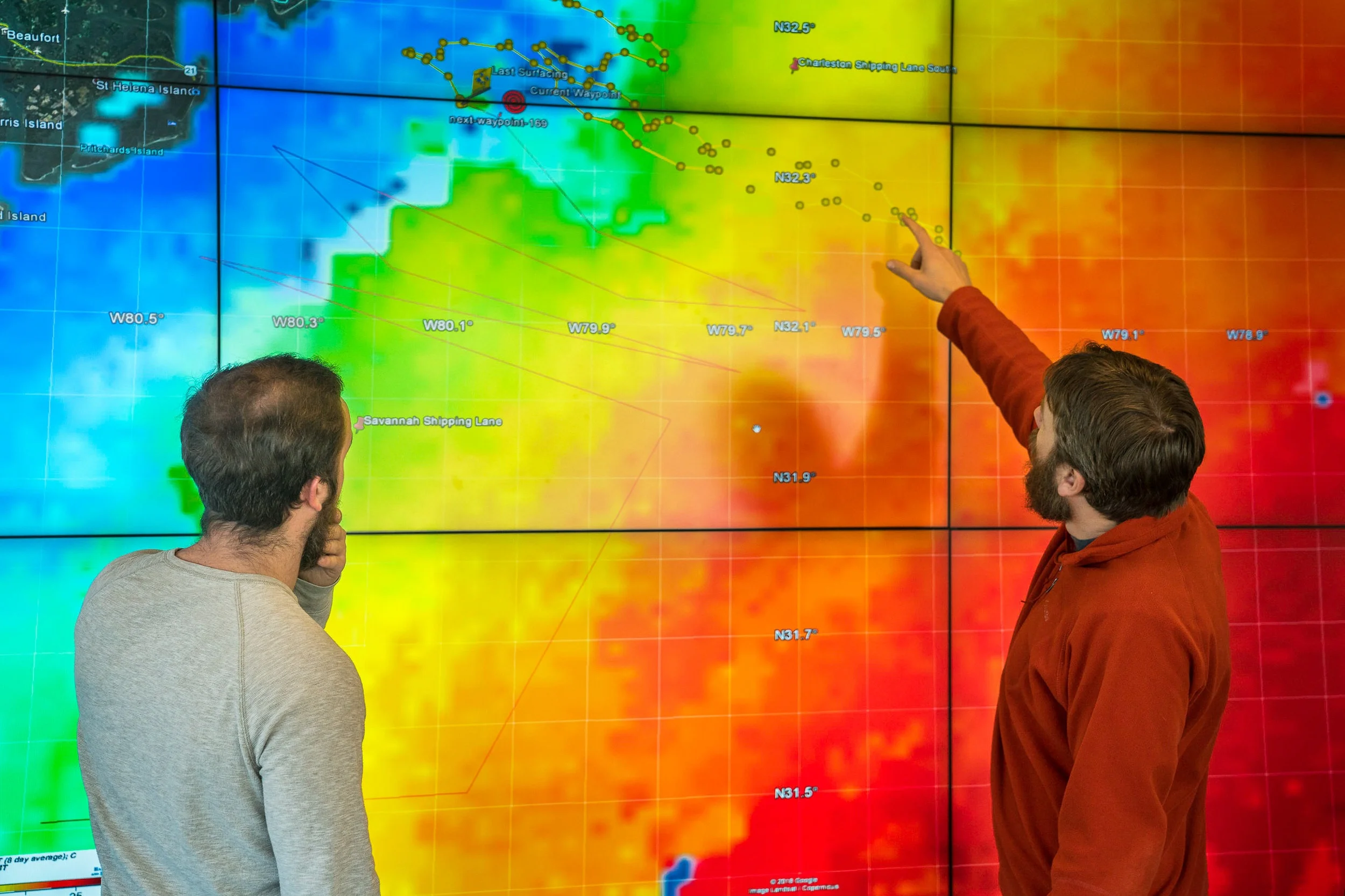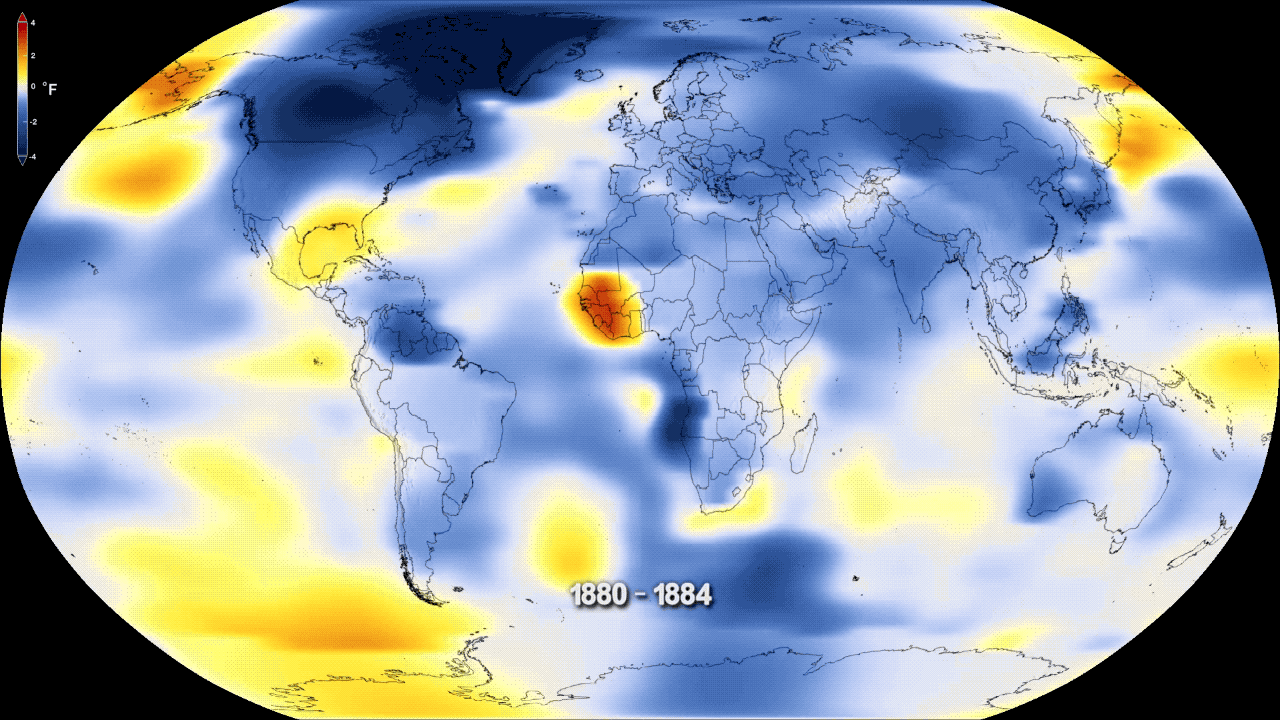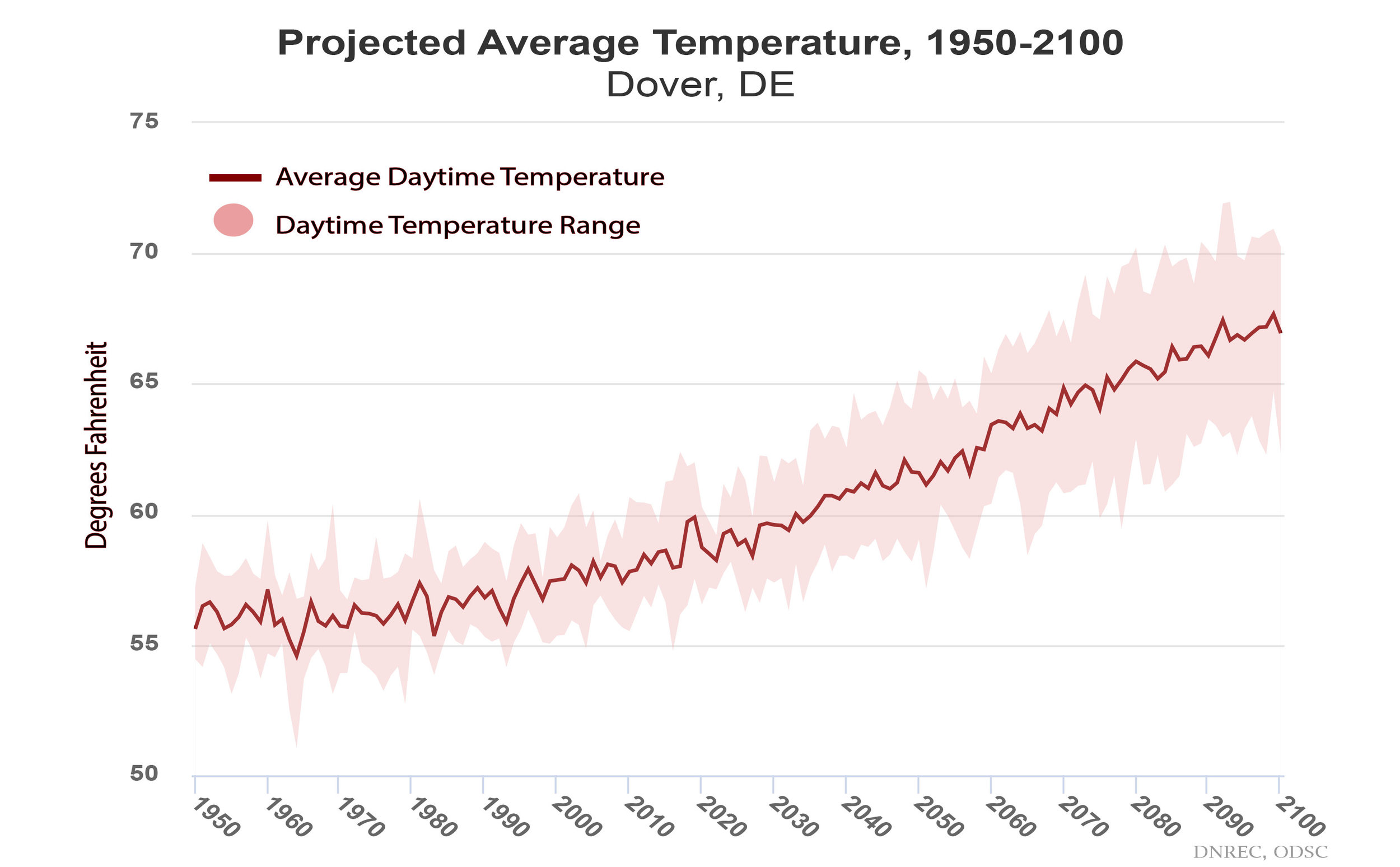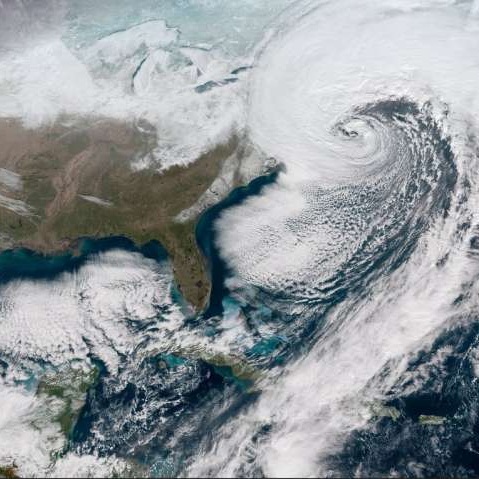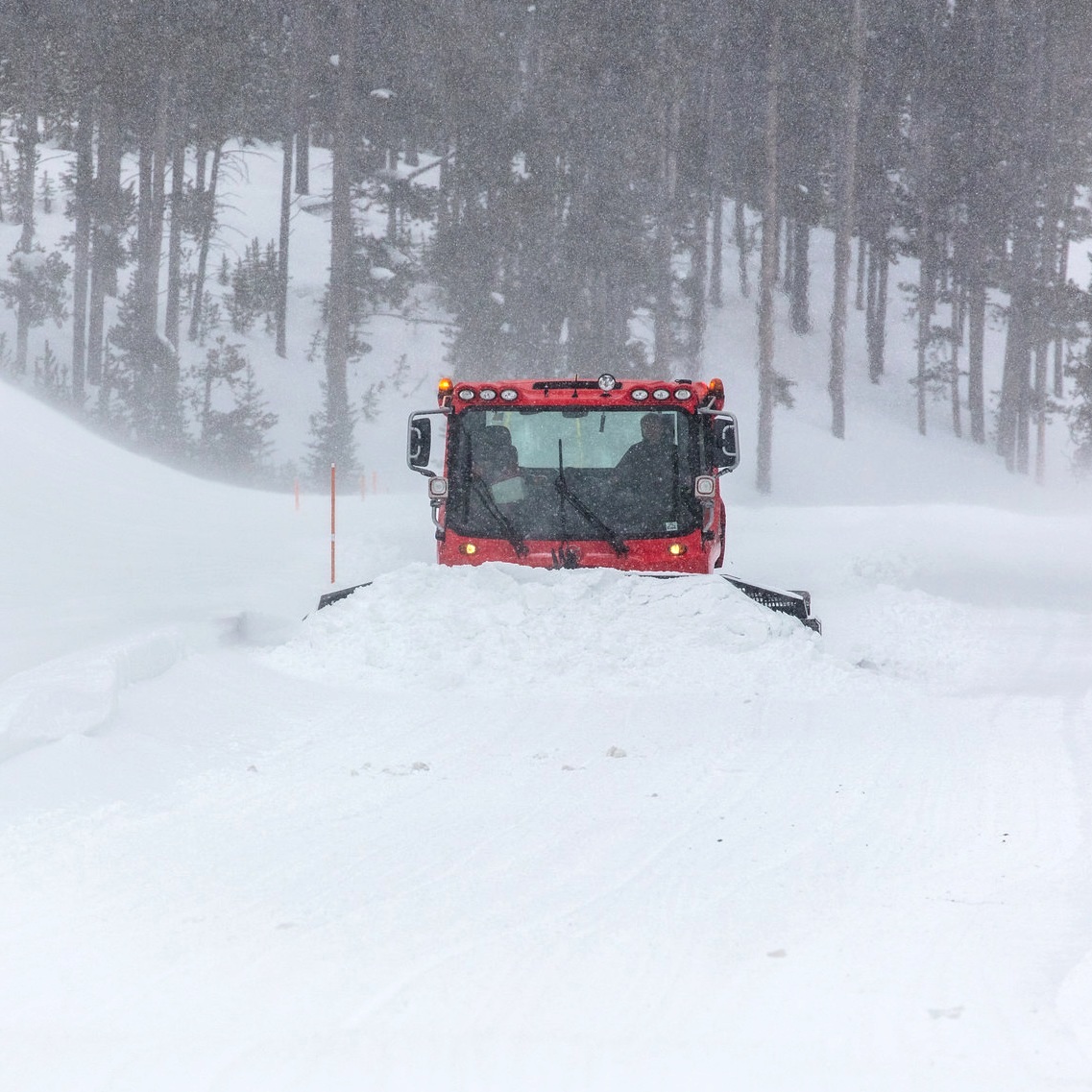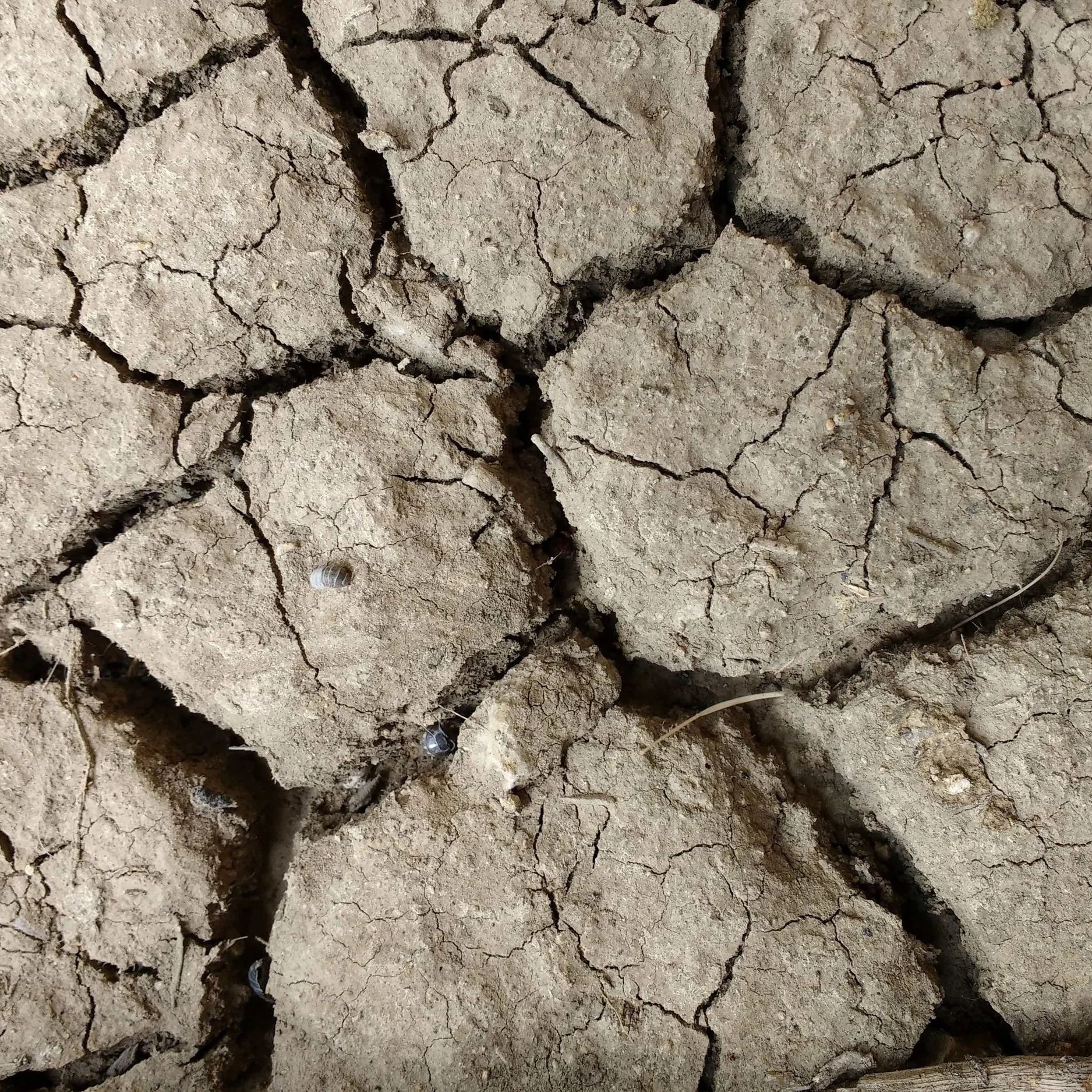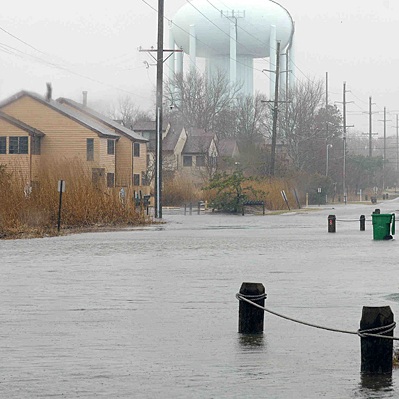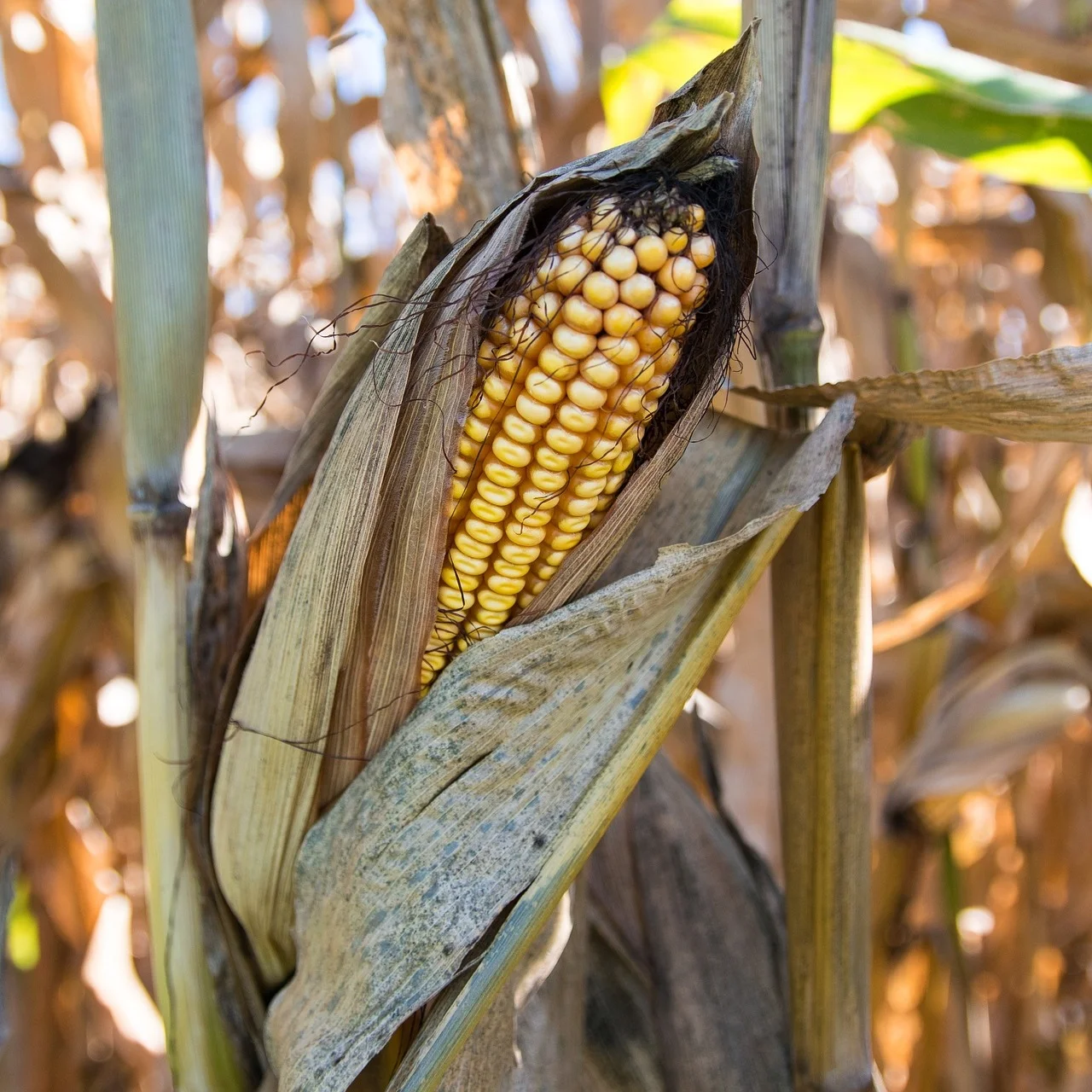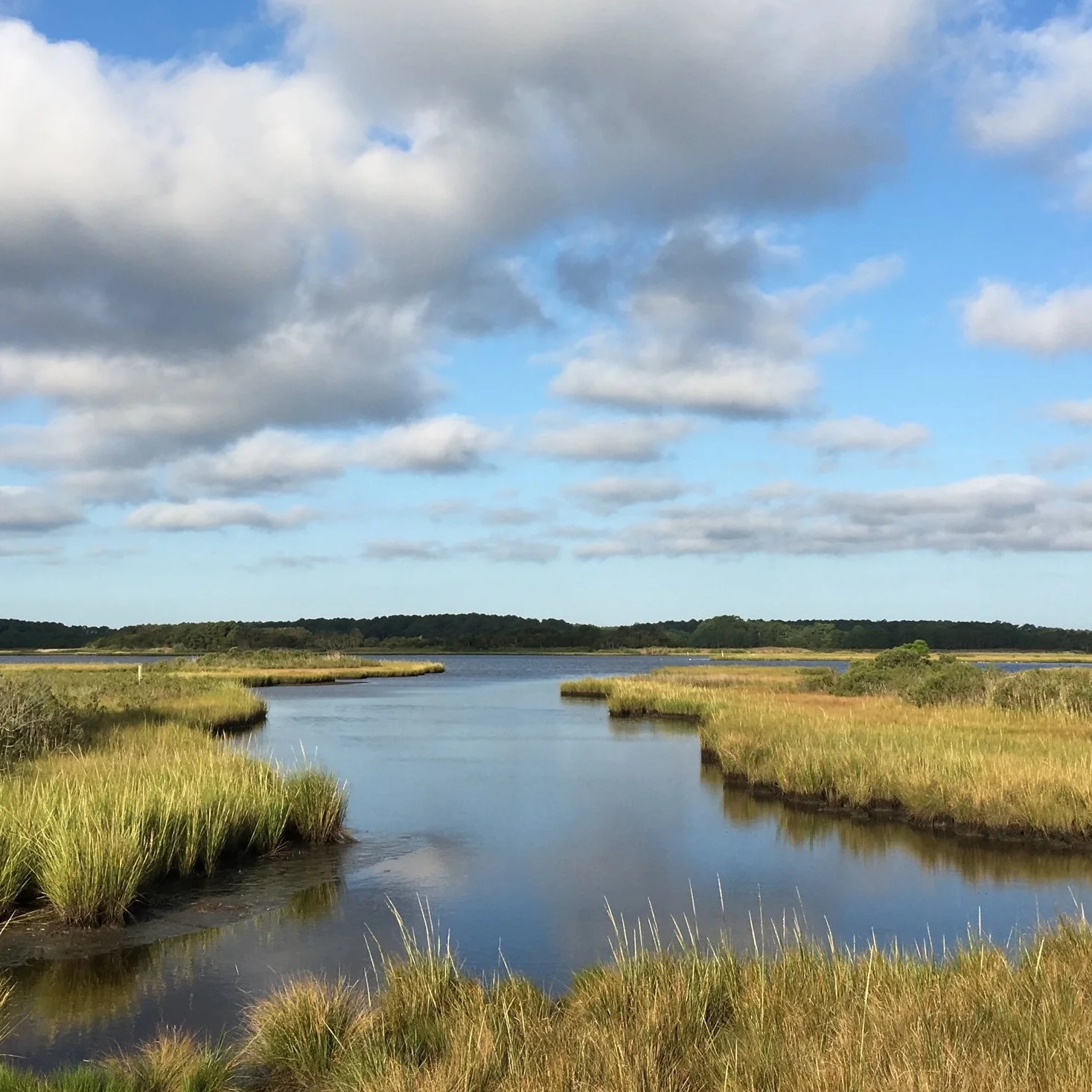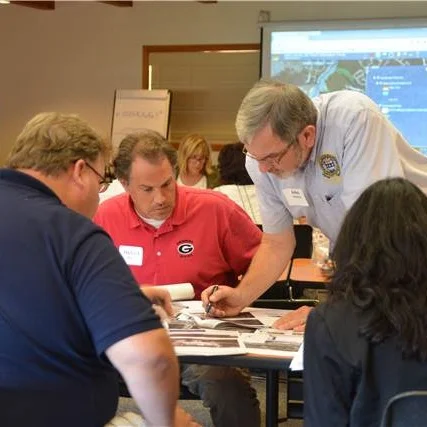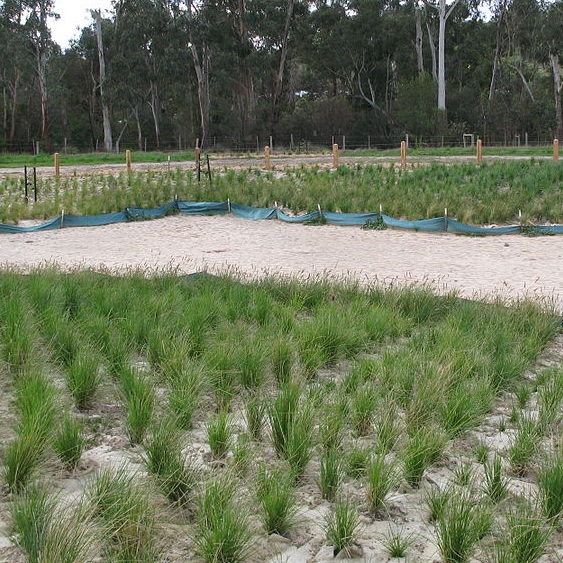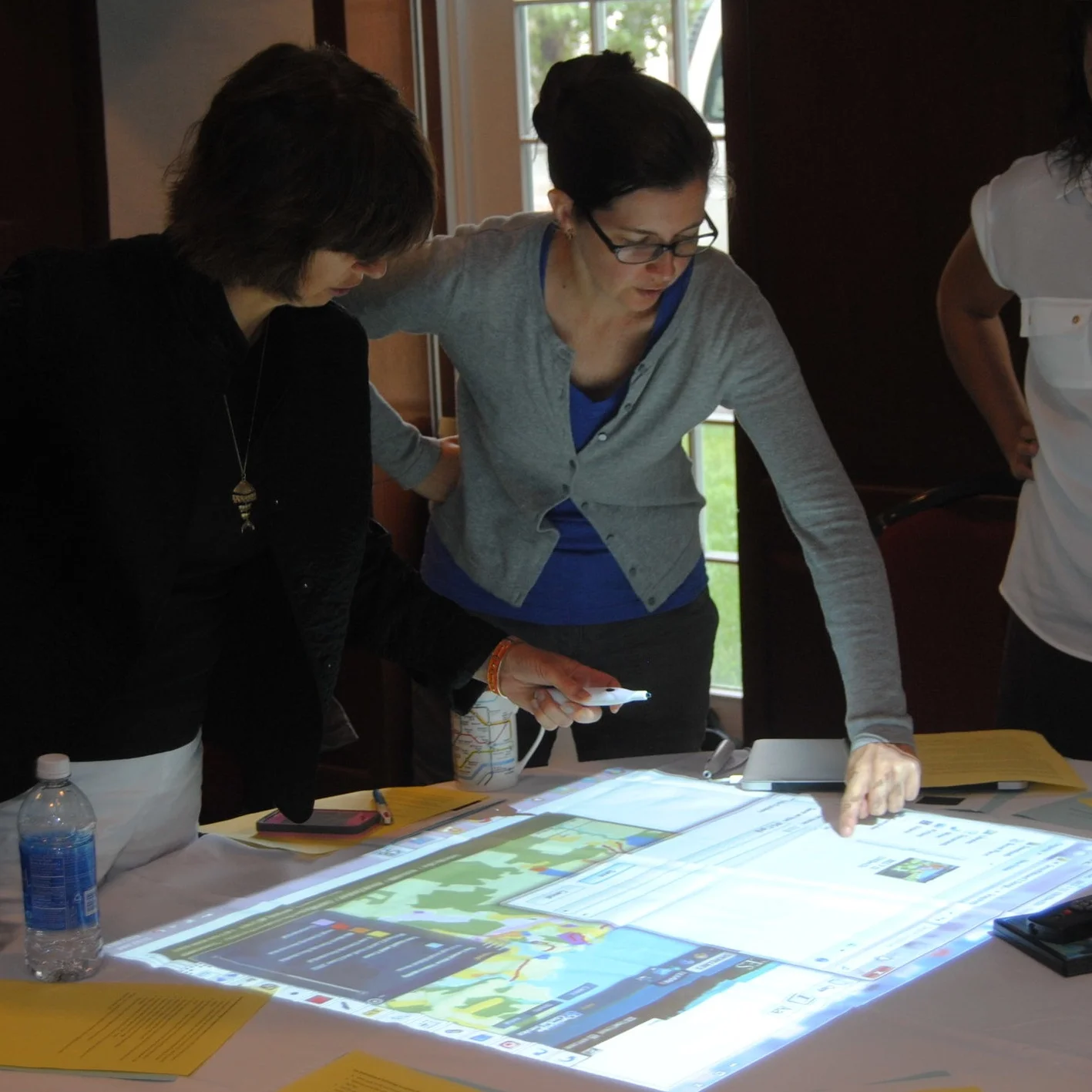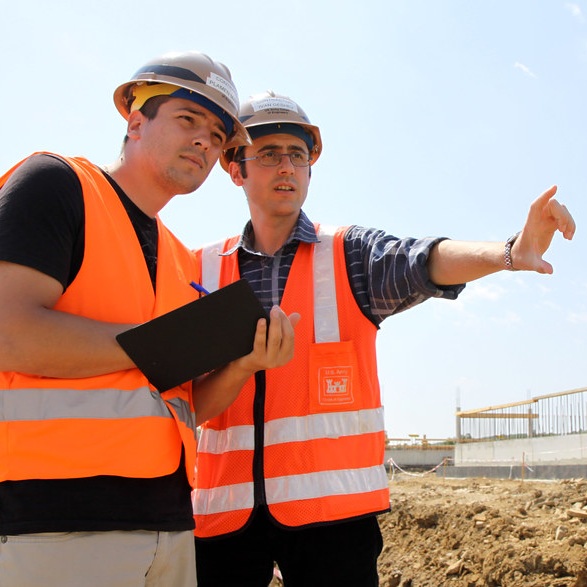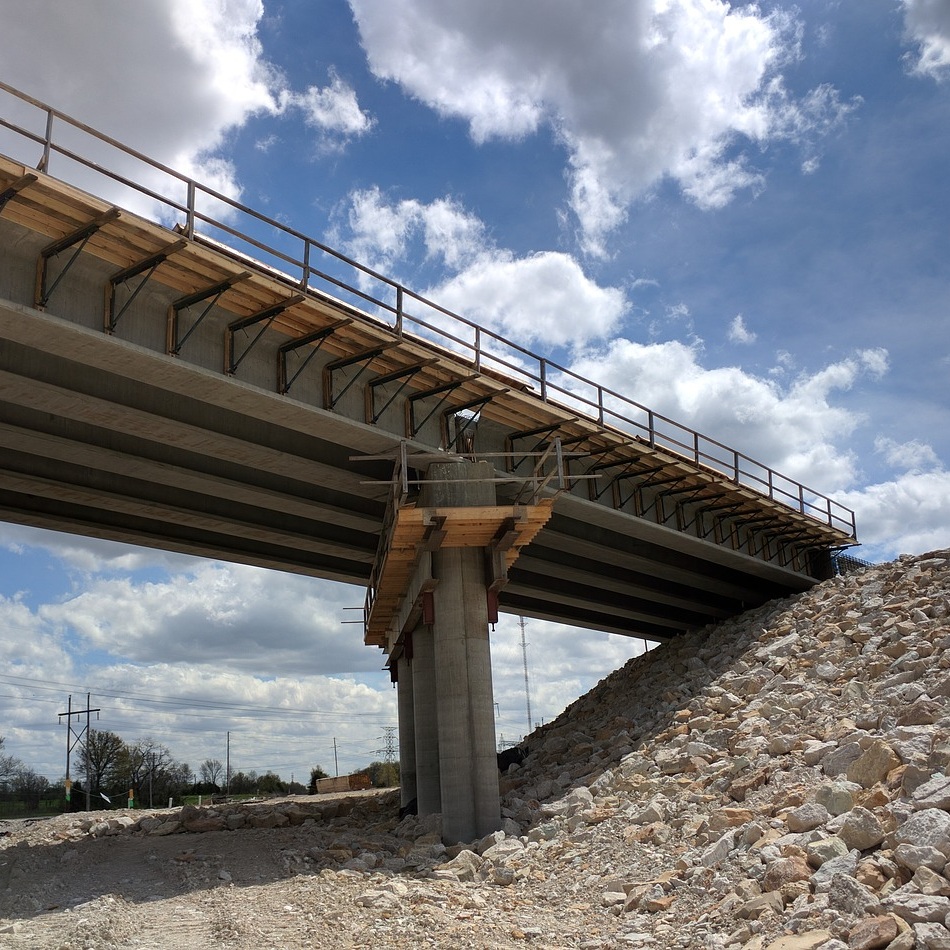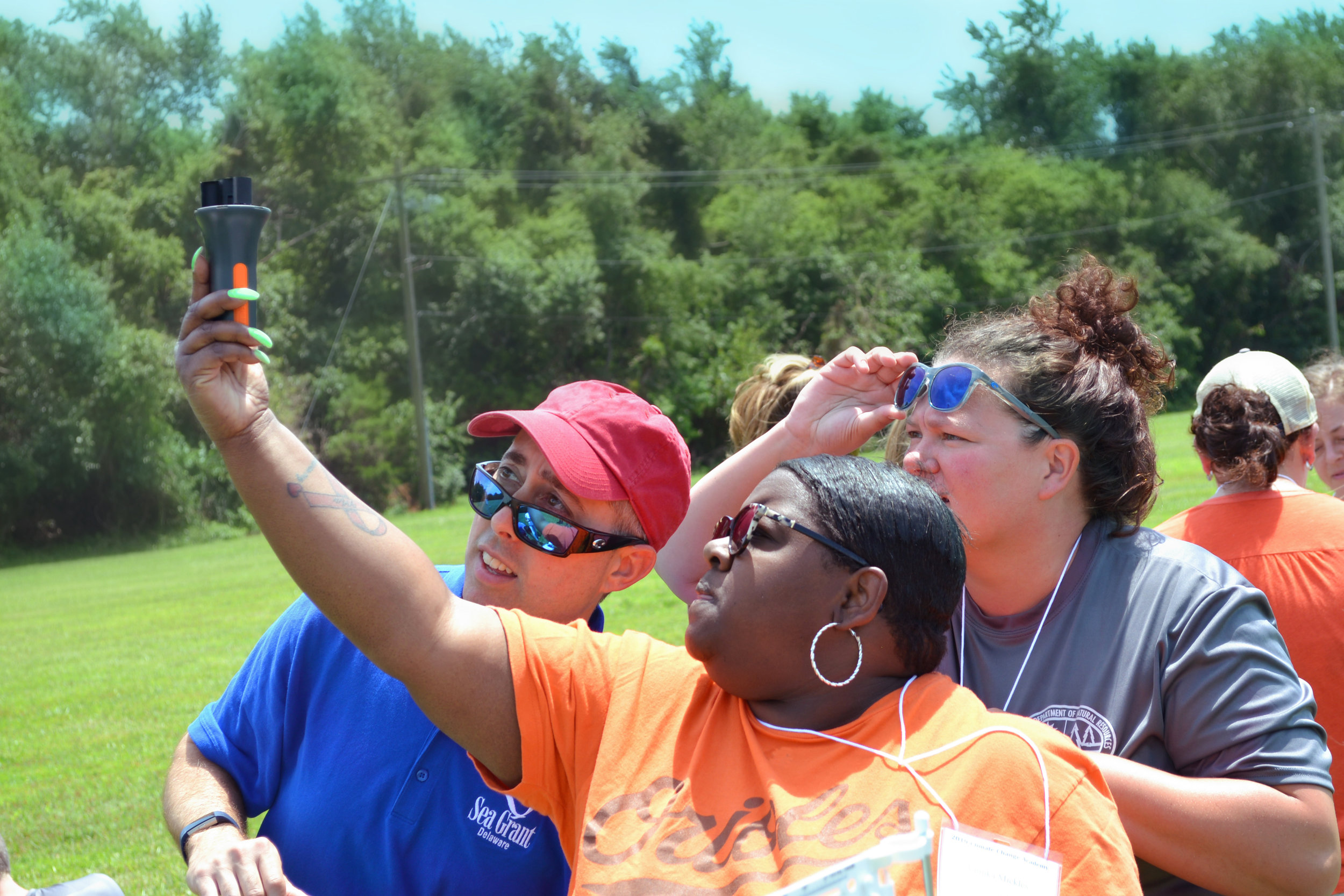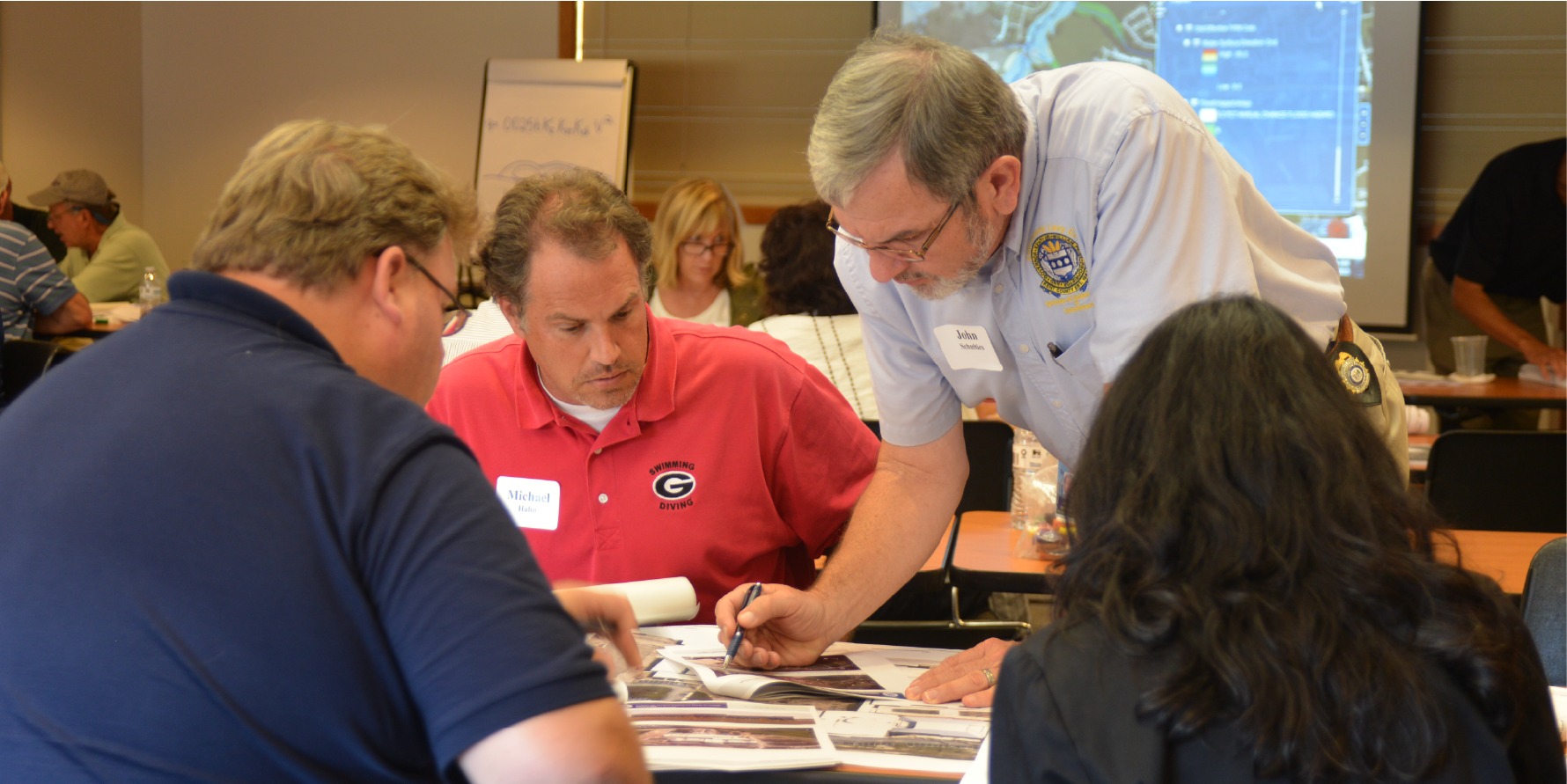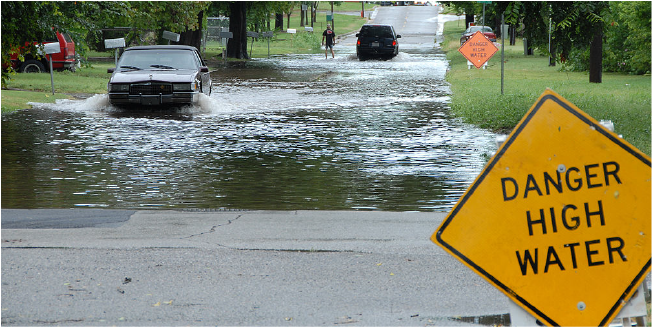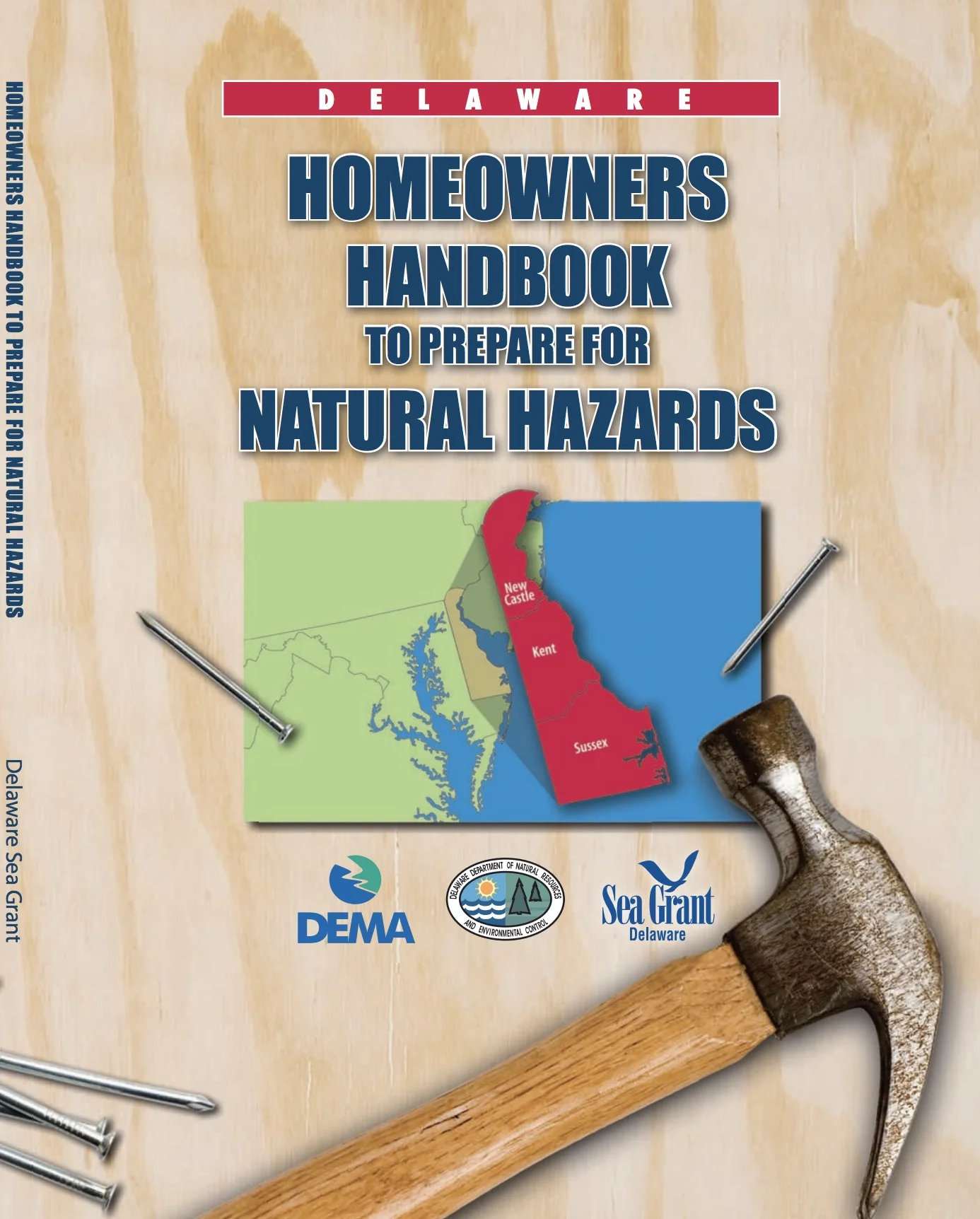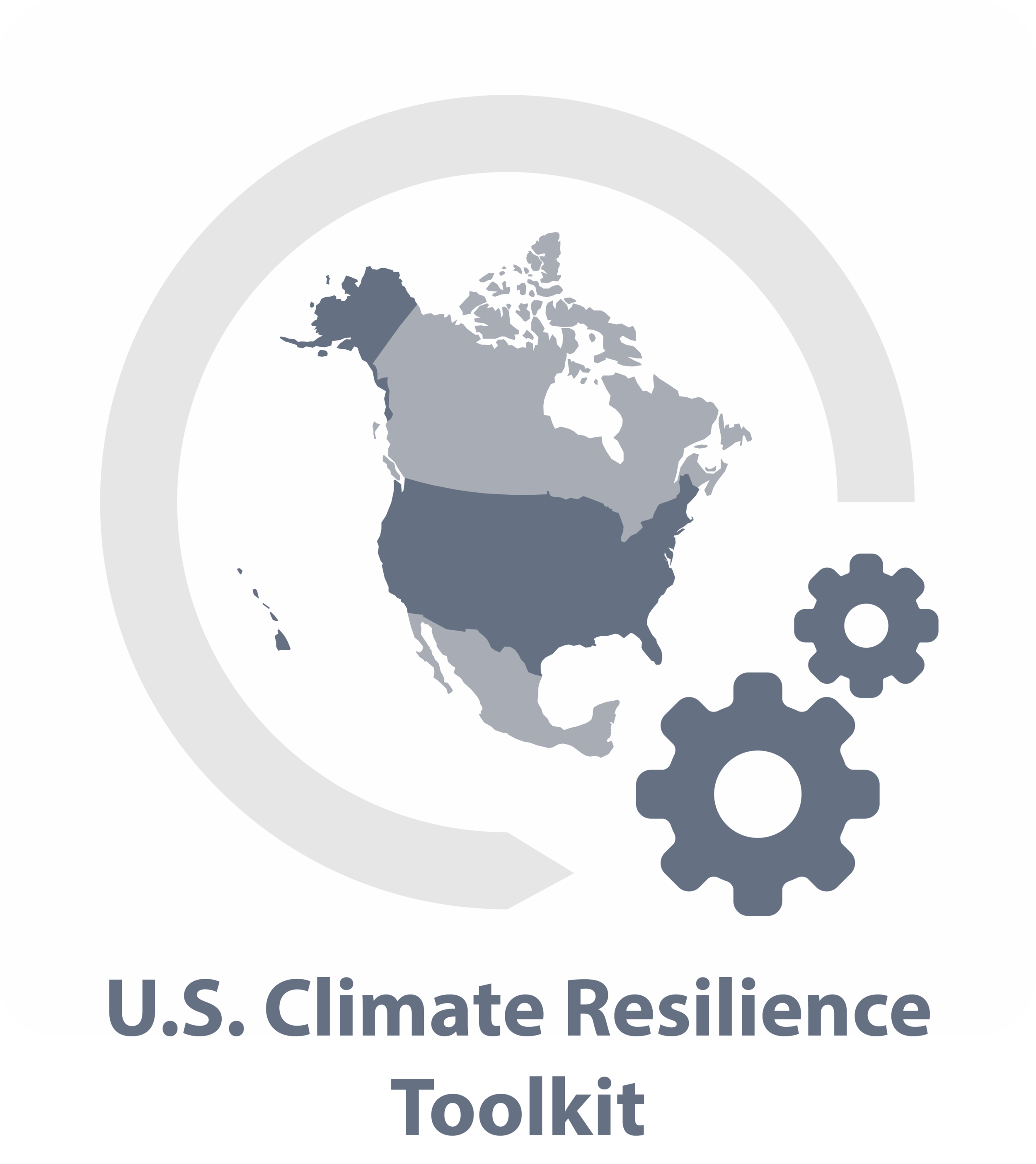Delaware Sea Grant is committed to helping Delaware prepare for and adapt to the effects of climate change.
Climate change is driving major changes throughout Delaware such as increased flooding, warmer temperatures, and more frequent droughts. These changes are very likely to have significant impacts on Delaware's infrastructure, coastal economy, and natural ecosystems.
At Delaware Sea Grant, we're giving communities the tools they need to prepare for climate change and supporting projects that help us better understand how climate change will impact Delaware.
What is Climate Change?
Global temperature change since 1881. Source: NASA Goddard Space Flight Center
Global climate is the average climate - including temperature, precipitation, winds, storm patterns, and more - over the entire planet. While Earth's climate changes naturally over the scale of thousands of years, global climate has been rapidly changing as a result of human activity.
Burning fossil fuels like coal, natural gas and gasoline adds carbon dioxide and other greenhouse gases to the Earth's atmosphere, which in turn trap more of the sun's heat against the planet. Overall, the concentration of heat-trapping carbon dioxide has risen by 46% since 1750 and average temperatures around the globe have risen by more than 1⁰F. In Delaware, temperatures have risen by more than 2⁰F.
If greenhouse gas emissions continue at current rates, scientists expect the Earth to warm by 5 to 9⁰F on average by 2100.
What’s the difference between climate and weather?
Weather is what’s happening in the atmosphere on any given day, in a specific place. Climate is the average of day-to-day weather over large areas and many years.
Keep in mind that unusually cold weather or snow doesn't mean that climate change isn't happening. We know that average temperatures are rising around the world. However, even as temperatures continue to rise, we can expect to have some colder-than-average seasons or even colder-than-average years at the local or regional level.
How does modern climate change differ from natural changes in the Earth's climate in the past?
The Earth's climate changed many times in the distant past as a result of natural causes, but today's climate change is different because human activity is the main cause - and warming is happening much faster than at any point in the Earth's past. In addition, modern human societies have developed and thrived during a period of relatively stable climate. This century marks the first time that humans will have to deal with rapidly changing climate on a global scale.
What’s the difference between "climate change" and "global warming"?
The terms climate change and global warming are often used interchangeably. Global warming refers to how average temperatures are rising as a result of greenhouse gas emissions. Climate change is a more holistic term that encompasses not only rising temperatures, but also changing patterns of precipitation and storms as a result of the planet's warming.
Climate Change Impacts
The 1-2⁰F increase in temperature that the world has experienced so far may not sound like much, but it’s enough to dramatically impact the planet. The ice sheets of Greenland and Antarctica are melting at unprecedented rates, causing the ocean to rise by about six inches. The ocean is also warming, reducing the extent of Arctic sea ice and increasing the intensity of storms. In addition, wildfires and droughts are increasing in frequency and intensity as a result of just 1⁰F of warming.
In Delaware, there are six major ways in which climate change will impact our state:
More Intense Coastal Storms
Climate change is expected to increase the intensity, frequency, size, and rainfall of coastal storms, including hurricanes. That means more flooding and wind damage in Delaware’s coastal communities, as well as faster erosion of the beaches and dunes that protect the Delaware coast. In addition, climate change could push storm tracks further north so that Delaware is at greater risk of major hurricanes than in the past.
Episodic Winter Storms
Climate change is likely to affect winter storms in Delaware in two ways. First, winter precipitation is likely to become more episodic - more snow and rain will fall in shorter, more extreme storms, making the overall effects of the storms worse. Second, increasing winter temperatures mean that more precipitation will fall as rain rather than snow or ice. While this may sound like a good thing, more rain could increase the frequency and intensity of inland flooding.
Frequent Droughts
More irregular precipitation and hotter temperatures as a result of climate change will combine to cause more frequent and more intense summertime droughts. These droughts could threaten Delaware’s agricultural economy, which relies heavily on irrigation.
Rising Floodwaters
Rising sea levels have already contributed to flooding at the Delaware coast, and the floods could get worse as the ocean continues to rise and coastal storms intensify. These floods make roads impassable, damage infrastructure, and even introduce saltwater into Delaware’s freshwater aquifers. Flooding isn’t limited to the coast, either - coastal storms can cause inland creeks to overflow, threatening homes and roads.
Extreme Heat
Climate change is expected to increase the number and intensity of extreme heat events in Delaware. Today, Delaware has on average only two days over 100⁰F each year. But by 2100, Delaware is expected to have as many as 28 days over 100⁰F. This extreme heat poses a danger to human health and is likely to stress the electrical grid as air conditioning becomes increasingly necessary.
Changing Ecology
Flooding, extreme heat, and droughts will combine to reshape the ecological landscape of Delaware. Marshes, which have historically helped protect the Delaware coast from storm flooding, are likely to be drowned by rising sea level. Forests, which help minimize inland flooding by holding rainfall in their soils, may succumb to extreme summertime conditions. Harmful algal blooms will become more frequent and Delaware’s fishing industry is likely to suffer as the Delaware Bay warms up.
For more information on how climate change will impact Delaware, check out the Delaware Climate Change Impact Assessment report.
Adapting to Climate Change
The future economic, human, and ecological costs of climate change can be staggering. But proactive planning and community action can help minimize or even prevent future damages. Developing adaptation action plans can help Delaware communities take a comprehensive approach to finding the best solutions, solve more than one problem with a single solution, and make local economies and infrastructure resilient to climate change.
An adaptation plan should:
Identify and assess the impacts that are likely to affect a community;
Identify actions that can help minimize these impacts;
Establish and implement a process to achieve these actions.
How Can Your Community Adapt to Climate Change?
Develop a Plan
Incorporate the impacts of climate change into a new or existing planning process.
Example: Create a comprehensive watershed management plan that accounts for projected increases in sea level and precipitation.
Protect Natural Ecosystems
Enhance, restore, or protect natural areas that can provide resilience against natural disasters.
Example: Restore local wetlands that buffer coastal properties from storm flooding.
Engage Your Community
Implement programs that educate or involve the public and community members.
Example: Work with residential and commercial property owners to develop on-site water retention systems to combat summertime drought.
Enact Regulations
Use zoning codes, building codes, ordinances, land use regulations, and other local governance tools to protect natural ecosystems and make infrastructure more resilient.
Example: Create a floodplain setback rule that requires homes to be built a minimum distance from floodplains, river channels, or shorelines.
Fund Adaptation Projects
Directly fund projects that help your community adapt to climate change.
Example: Use government funds to elevate infrastructure such as roads and buildings to protect them from flooding.
Gather Information
Address knowledge gaps that currently hinder climate change adaptation planning efforts.
Example: Conduct a study of how vulnerable your community’s infrastructure, including evacuation routes and critical facilities, is to flooding.
Create Economic Incentives
Provide incentives or rebates to encourage residents and businesses to implement strategies that increase community and infrastructure resilience.
Example: Offer financial incentives to building owners who retrofit structures to meet certain floodproofing or elevation standards.
Preparing Delaware for Climate Change
Delaware Sea Grant and the State of Delaware are committed to helping local communities prepare for the present and future impacts of climate change. To learn more about our efforts, check out our ongoing extension projects, funded research, and resources for adapting to a changing climate.
Learn more about our past climate change extension and research projects in our archive.

